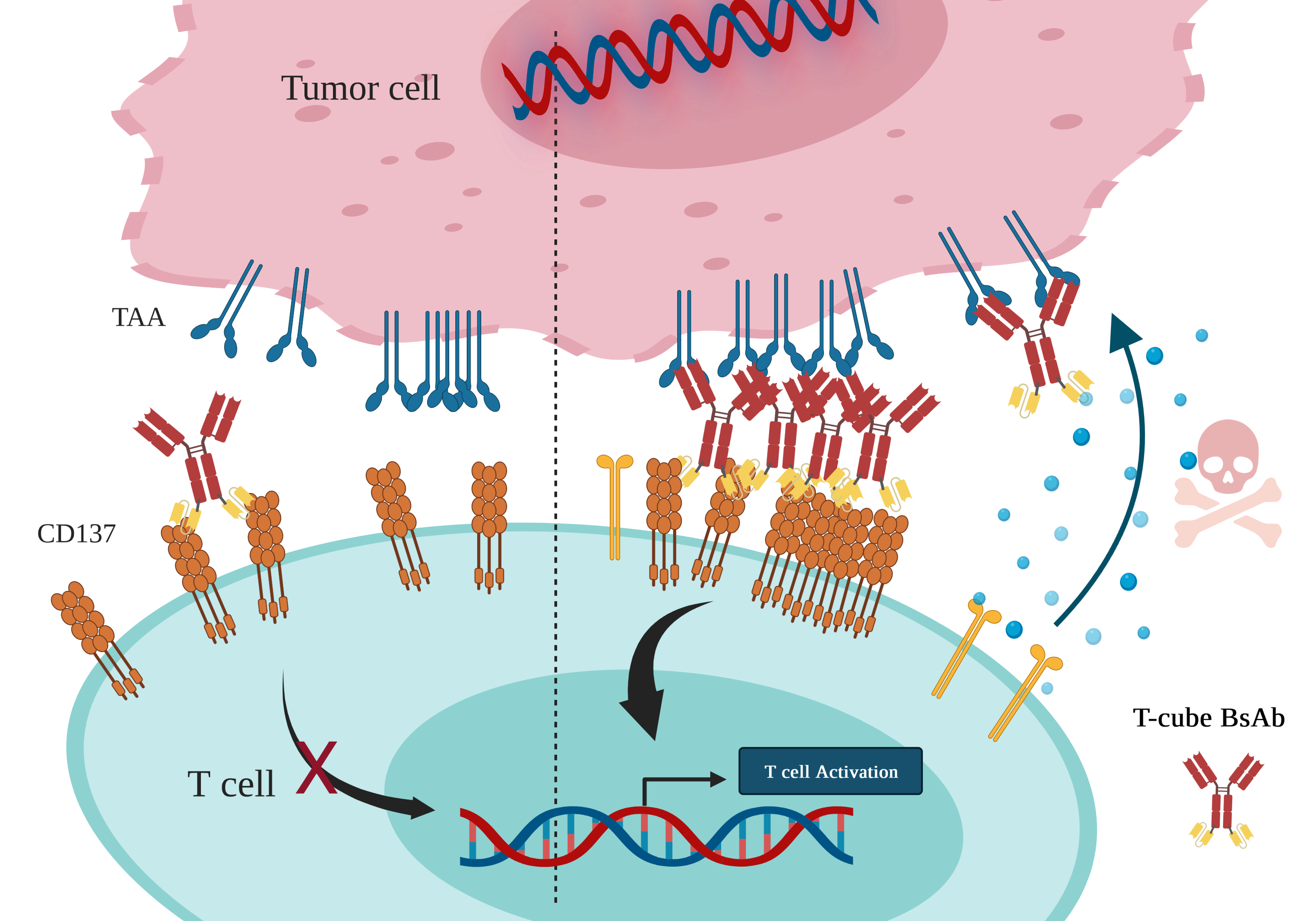Value
To develop bispecific antibodies primarily focused on cancer immunotherapy, with good safety and efficacy
Description
The T-cube bispecific antibody platform is a unique platform that further activates T-cell activity by targeting a specific antigen. This platform activates T-cell activity by targeting the common immune checkpoint CD137 on T cells, and simultaneously binds to different tumor antigens to activate T-cell activity, thereby generating a tumor-killing effect. APBio has designed several bispecific antibody product lines using this platform, such as AP203, AP402, and AP601.
T-CUBE Diagram

Features
- Modularity of target binding sites, offering rapidly replacement
- Superior productivity and yield
- Bivalent binding activity for each target.
- Balancing efficacy and safety.



